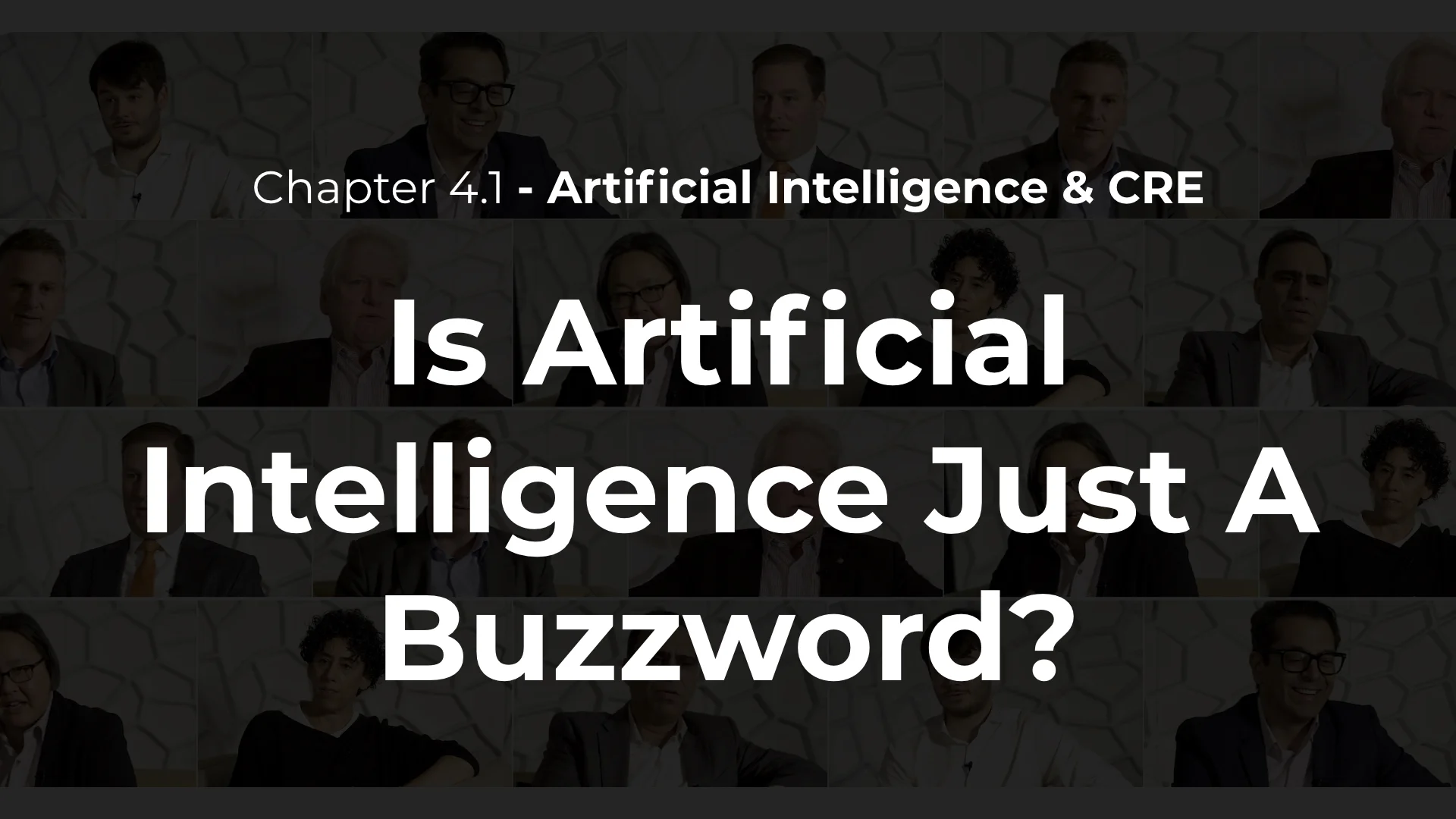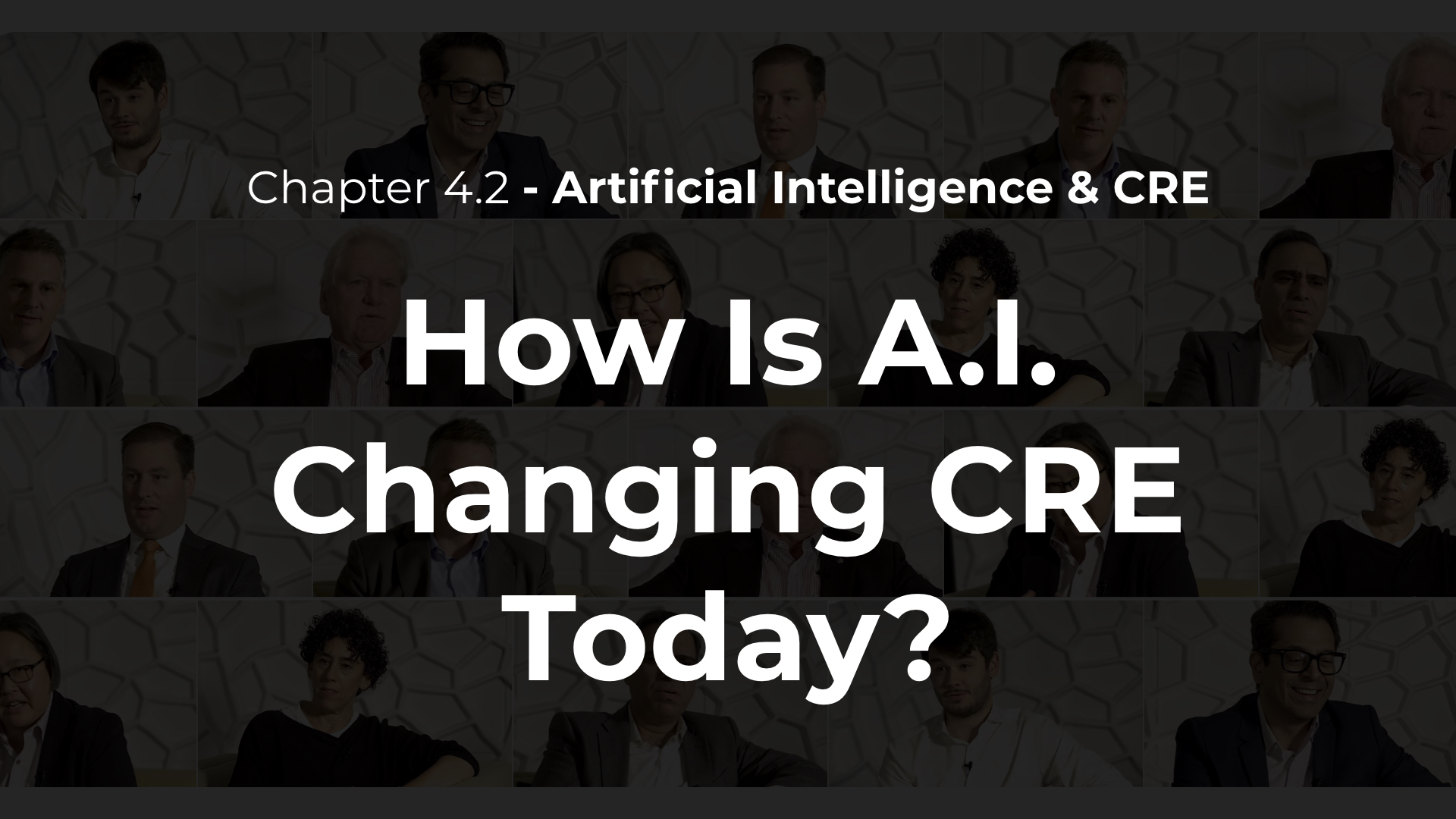Inside CRE Tech • Episode 4.1
Is Artificial Intelligence Just a Buzzword?
Top CRE executives discuss artificial intelligence and commercial real estate technology.
——
Read Transcript:
John Gilbert, EVP, COO, CTO, Rudin Management
Is artificial intelligence changing real estate today? The answer is yes.
Jack Sibley, Technology & Innovation Strategies, TH Real Estate
So I think it's definitely a buzzword. But I think in the long term especially is going to generate a lot of value.
Hussain Ali-Khan, Global Alliance Director, CBRE
The impact of artificial intelligence on real estate today is just at its starting point.
Adam Stoltz, National Director, Consulting Services - Transwestern
Artificial intelligence is starting certainly to have an impact on the way that we approach real estate.
Raj Bhatti, CIO, NGKF
It's not a buzzword and I think there's a very good chance this is going to help us not just in commercial real estate but live our lives in general and in the future.
Gabrielle Rubin Deveaux, Global Real Estate & Facilities, Buzzfeed
I think the one way I've experienced AI is in the world of design.
Jack Sibley, Technology & Innovation Strategies, TH Real Estate
There's already quite a lot of really interesting use cases today that are starting to do some really interesting outputs. But I think in 10 years time will we look back at 2018 and think that was the year that A.I. really changed real estate…
Gabrielle Rubin Deveaux, Global Real Estate & Facilities, Buzzfeed
I think the misconception is that it's going to be uber expensive. And the truth the matter is with this kind of capability it's going to save your time because it's going to catch things on the software (they're using rabid and gaming software) whatever types of technology they're putting together can be ahead of it and they can design faster than they ever have before. We've been doing the same thing for, you know, 50 plus years and it's about time that we're changing that model.
Tama Huang, Chief Innovation Officer, CohnReznick
Where A.I. comes into play with regards to design and construction is that in the old days we would take film, and then we would go and develop that film and would come back and be like, “oh I got three really good pictures today.” We can do that on the fly. And that is something that is happening in construction in Zion as well with the new technologies that are available to us. So we are starting to be able to have immersive technologies that allow us not just to look at planning, from a 3D perspective, but truly place ourselves inside of a space that isn't even completed yet, to the extent where we're not just saying, “hey, where's the sun going to be in September versus where's the sun going to be in March,” depending on the lighting. And what that means in terms of when we'll replace our windows on our walls, but when we are standing in center court and playing basketball and I'm looking up, is that digital display going to distract me. Right. So I can become LeBron James in the middle of central court without being LeBron James.
Adam Stoltz, National Director, Consulting Services - Transwestern
It's having without question an impact on the way we look at the occupancy and use of buildings. I think it's also going to have a profound impact on the way that we value assets, the way that we market and position them, and in particular, the way that brokers go about exploring the rental rate considerations or the lease term considerations for a tenant, regardless of whether you're on the agency side or the tenant rep side of the conversation. Artificial intelligence is going to allow us to look back at historical information and apply that plus other factors to project out more reliably where markets and building conditions and asset valuations are likely to go in the future.
Jack Sibley, Technology & Innovation Strategies, TH Real Estate
I think we're probably in the first innings of this as a technology and it's going to keep evolving, but it's never gonna be a silver bullet I suppose either. It's going gonna be more and more use cases that ultimately result in the next 10 - 15 years of real estate, many processes being either automated or having a high embedded within them.



